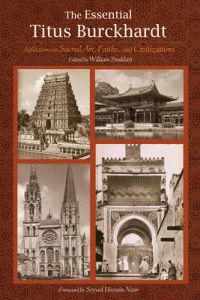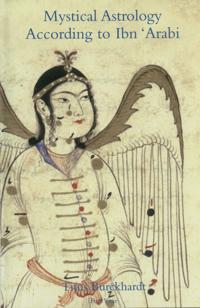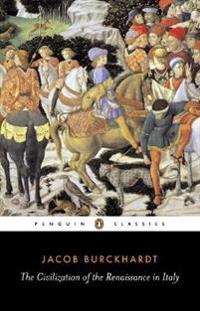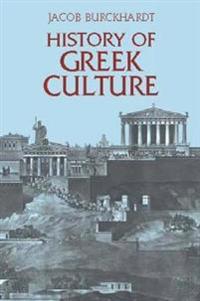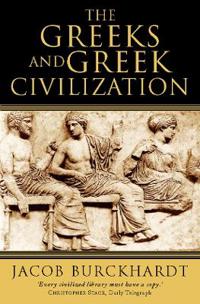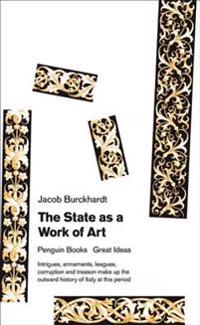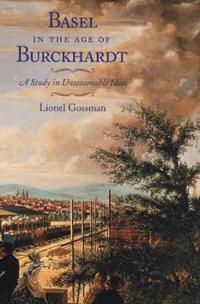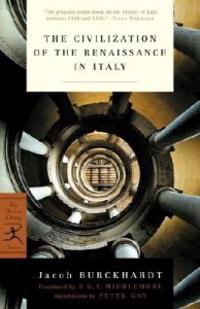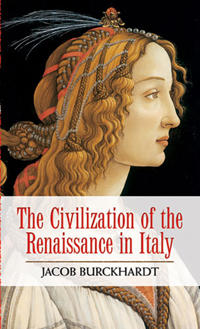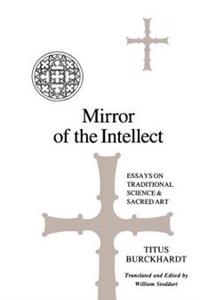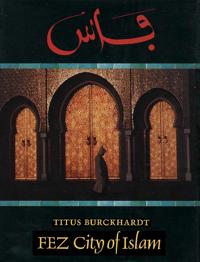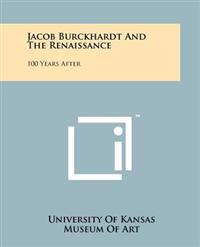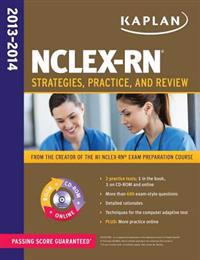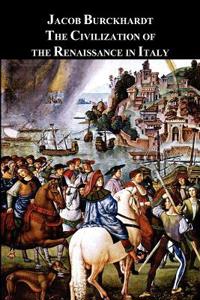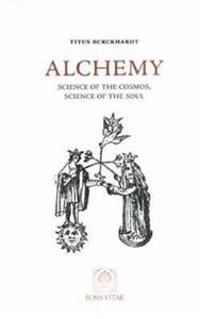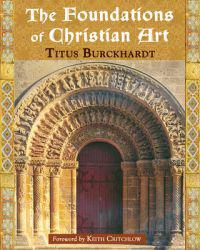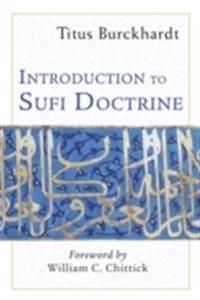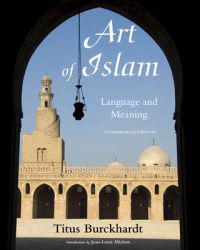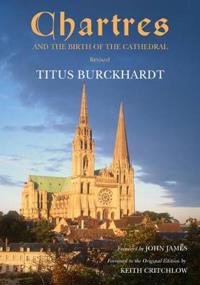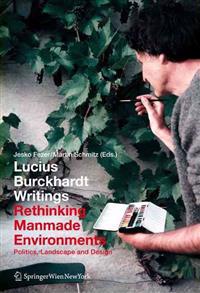The Essential Titus Burckhardt (Häftad)
avTitus Burckhardt, William Stoddart
ISBN: 9780941532365 - UTGIVEN: 200305This book is the much-anticipated collection of writings from Titus Burckhardt, one of the great Perennialist authors of the 20th century, edited by the world's foremost expert on the Burckhardt body of works, William Stoddart. Burckhardt's writings are characterized by (1) a profound grounding in t[...]
Mystical Astrology According to Ibn 'Arabi (Pocket)
avTitus (TRN) Burckhardt, Titus Burckhardt, Titus (TRN) Burckhardt
ISBN: 9781887752435 - UTGIVEN: 2001-12The Civilization of the Renaissance in Italy (Pocket)
avJacob Burckhardt, S. G. C. (TRN) Middlemore, Jacob Burckhardt
ISBN: 9780140445343 - UTGIVEN: 1990-11For nineteenth-century Swiss historian Jacob Burckhardt, the Italian Renaissance was nothing less than the beginning of the modern world - a world in which flourishing individualism and the competition for fame radically transformed science, the arts, and politics. In this landmark work he depicts t[...]
History of Greek Culture (Pocket)
avJacob Burckhardt, Palmer (TRN) Hilty, Jacob Burckhardt
ISBN: 9780486420967 - UTGIVEN: 2002-06Greeks and Greek Civilization (Häftad)
avJacob Burckhardt
ISBN: 9780006388821 - UTGIVEN: 1999-04For the first time in English, one of the greatest masterpieces of historical writing: 'Every civilized library must have a copy.' CHRISTOPHER STACE, Telegraph[...]
Nutritional Aspects of Osteoporosis (Inbunden)
avBurckhardt, Dawson-Hughes
ISBN: 9780121417048 - UTGIVEN: 2004-08-01Based on presentations given at the Fifth International Symposium on Nutritional Aspects of Osteoporosis held in Lausanne, Switzerland in 2003, this book discusses the nutritional influences on bone health. It also covers insights into the role of proteins, vitamins, potassium, vegetables, food acid[...]
The State as a Work of Art (Häftad)
avJacob Burckhardt
ISBN: 9780141048116 - UTGIVEN: 2010-08Pioneering art historian Jacob Burckhardt saw the Italian Renaissance as no less than the beginning of the modern world. In this hugely influential work, he argues that the Renaissance's creativity, competitiveness, dynasties, great city-states and even its vicious rulers sowed the seeds of a new er[...]
Basel in the Age of Burckhardt
ISBN: 9780226305004 - UTGIVEN: 2002-04In the 19th century, nationalism and democracy were on the rise in Europe, transforming old nation-states and leading to the creation of powerful new ones. Basel, with its legendary wealth, its 400-year-old university, and its tradition of humanist learning, clung to its ancient status as an indepen[...]
When Bob Met Woody: The Story of the Young Bob Dylan (Inbunden)
avGary Golio, Marc Burckhardt
ISBN: 9780316112994 - UTGIVEN: 2011-05The Civilization of the Renaissance in Italy (Pocket)
avJacob Burckhardt, Peter Gay, Hajo Holborn
ISBN: 9780375759260 - UTGIVEN: 200203Published in 1860, Burckhardt's work redefined our sense of the European past, wholly reinterpreting what has since been known simply as the Italian Renaissance. With unsurpassed erudition, Burckhardt illuminates a world of artistic and cultural ferment, innovation, and discovery; of revived humanis[...]
Judgements on History and Historians (Pocket)
avJacob Burckhardt
ISBN: 9780415412933 - UTGIVEN: 2007-02-28The Civilization of the Renaissance in Italy (Pocket)
avJacob Burckhardt
ISBN: 9780486475974 - UTGIVEN: 201009Fez (Inbunden)
avTitus Burckhardt
ISBN: 9780946621170 - UTGIVEN: 199212'Fez, City of Islam' is undoubtedly one of Titus Burckhardt's masterpieces. It conveys a profound understanding of the sacred roots that nourish Islamic culture and civilisation. As a young man in the 1930s, Burckhardt spent some years in Morocco where he became acquainted with several remarkable re[...]
Jacob Burckhardt and the Renaissance: 100 Years After (Häftad)
avUniversity of Kansas Museum of Art
ISBN: 9781258132552 - UTGIVEN: 201110Travels in Syria and the Holy Land (Pocket)
avBurckhardt, John Lewis
ISBN: 9781426432774 - UTGIVEN: 2007-10-11Kaplan NCLEX-RN: Strategies, Practice, and Review [With CDROM] (Häftad)
avBarbara J. Irwin, Judith A. Burckhardt
ISBN: 9781609788919 - UTGIVEN: 201302To become a registered nurse in the United States, nursing school graduates must pass the National Council Licensure Examination for Registered Nurses (NCLEX-RN). It is a computer-adaptive test with between 75 and 265 questions that can take up to 6 hours. Each year, around 200,000 nursing students [...]
The Civilization of the Renaissance in Italy (Häftad)
avJacob Burckhardt
ISBN: 9781781391006 - UTGIVEN: 201202Landmark Papers on Trust (Inbunden)
avGary Golio, Marc Burckhardt
ISBN: 9781845429348 - UTGIVEN: 2008-05This important two-volume set presents the most influential papers published in the field of trust research since the early 1960s. It reflects the key ideas on trust which have developed in various disciplines, including management studies, social psychology, organizational sociology and economics. [...]
The Foundations of Christian Art (Pocket)
avTitus Burckhardt, Michael Oren Fitzgerald, Keith (FRW) Critchlow
ISBN: 9781933316123 - UTGIVEN: 2006-04The art historian and philosopher of religion, Titus Burckhardt (1908-1984), was one of the 20th century's most renowned experts on the art of many traditional worlds as well as the religions that illuminated the art of the civilisations which flowered from them. This book takes the reader on a pil[...]
Introduction to Sufi Doctrine (Häftad)
avTitus Burckhardt
ISBN: 9781933316505 - UTGIVEN: 200805Titus Burckhardt (1908-1984) was a leading member of the traditionalist or perennialist school of comparative religious thought, well-known for its espousal of the transcendent unity of religions. Burckhardt was also an expert on Islam, Islamic arts and crafts and its spiritual dimension, Sufism. It[...]
Art of Islam (Häftad)
avTitus Burckhardt
ISBN: 9781933316659 - UTGIVEN: 200903Called the definitive book on Islamic Art by S.H. Nasr, this beautifully illustrated masterpiece is presented in a revised, full colour, commemorative edition containing 285 new colour photos and a new Introduction. Burckhardt provides an in-depth analysis of Islamic architecture, from Spain and Mo[...]
Chartres and the Birth of the Cathedral (Häftad)
avTitus Burckhardt
ISBN: 9781933316772 - UTGIVEN: 201003This new and revised edition of Titus Burckhardt's masterpiece, Chartres and the Birth of the Cathedral, is a richly colored window onto the lofty intellectual and spiritual climate that conceived the marvel that is Gothic architecture. Featuring a new appendix with three sections, and a new Forewor[...]
Lucius Burckhardt Writings. Rethinking Man-made Environments (Häftad)
ISBN: 9783709112564 - UTGIVEN: 201209Design for a democratic society was a matter of urgency in bombed-out postwar Europe. Swiss sociologist, journalist, professor and founding father of strollology Lucius Burckhardt (1925--2003) pioneered the interdisciplinary analysis of man-made environments, and thereby highlighted both the visible[...]

